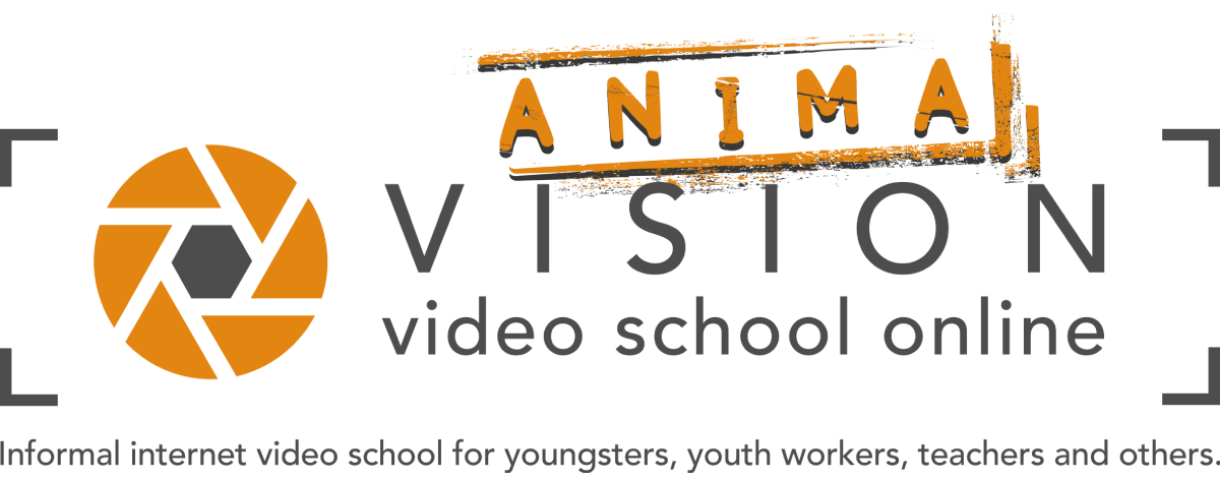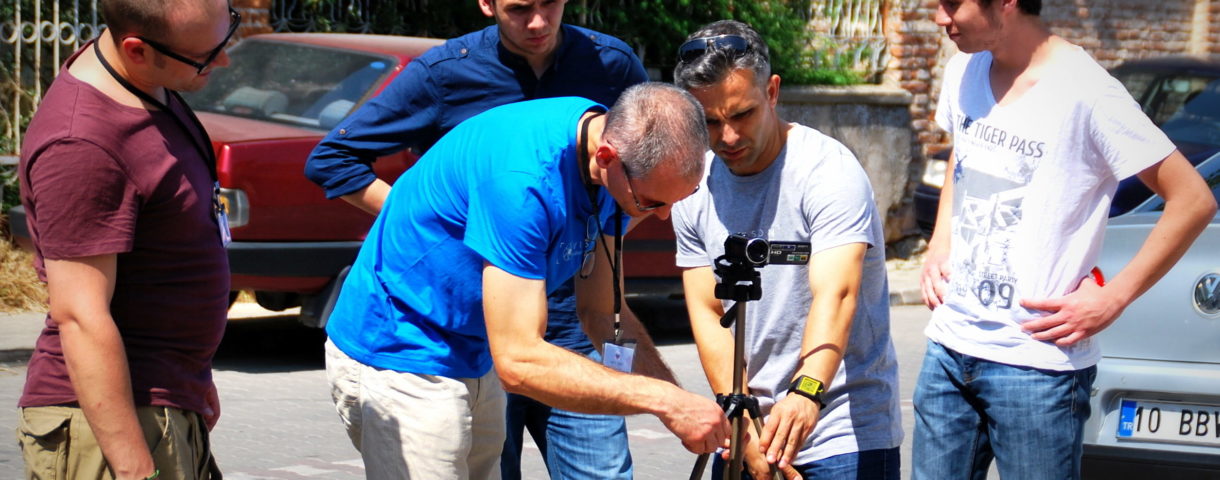Hello young video-maker!
Ever shared a beach photo on Facebook or tweeted from a concert? Ever read an inspiring article or book, or watched a film that changed the way you think?
If yes, then you’ll know there are many ways to reach and interact with people around the globe. To share knowledge and tell your story. To voice an opinion and be heard.
But even today there are millions around the world who don’t have these freedoms. Those of us who do must use the tools we have to defend them.
At VISION – the video school online – we believe that video-making is a great way to share opinions and get messages across.
We hope our lessons in video-making will empower young people to do just that, and help them to develop and express their creativity.
Video: Promotional video for VISION video school online
How to use this website
Structure
The website’s content is split into five sections, each with one or more chapters:
- In Basics that every video-maker should know you’ll find essential information on using a camera; picture composition and colour; lighting; and how to structure your film. Take a good look at this section before you plan a video or film.
- Pre- and post-production focuses on writing a script and making a storyboard; the use of sound, music and sound effects; film-editing; and finding free internet resources to help you improve and finalise your project.
- Choose your format of expression is all about producing different types of video: video collage, music video clip, feature film, interview, TV news and reportage, documentary, stage performance, sports event, and stop-motion animation. There’s plenty of good practice examples to learn from, too.
- Promote and share will show you how to prepare your video for broadcasting and share it through film festivals and screenings.
- In the last section, Understanding film, you’ll learn the important skill of analysing different types of film from the ‚Plot and character analysis‘ chapter.
Individual chapters are structured in the following way:
- Introduction, which explains what you’ll learn from the chapter.
- VISION in action: a summary section for those using mobile phones to access the site.
- Tools and equipment.
- Main section, with detailed information and good-practice examples.
- Common mistakes.
- Exercises (where relevant).
- Related topics and links to external resources.
- Methodology, with tips on working with the chapter and helping young people learn from it.
- Terminology: glossary terms mentioned in the chapter.
Printing
You’ll find an orange printer icon top right on every page of the VISION website. Click on it to print or save the page as a PDF.
You can make a little booklet by printing off all the chapters in the guide, or just the ones you’re particularly interested in.
Mobile-phone reminder
After the introduction of each chapter, you’ll find a mobile-version reminder called VISION in action. It’s marked with orange brackets.
| |
Vision in action |
|
| This reminder summarises important information in the chapter. It also serves as a digital prompt when you’re working on location. | ||
Methodology
Dear youth worker, teacher, mentor! A word about how you might use our guide to video-making.
VISION is a tool for informal learning. We’ve drawn on our professional knowledge and experience, and adapted the content for use by beginners.
The aim is to provide basic knowledge about video-making, and to inspire young people to explore, experiment and create their own videos and films. The guide is also intended as help for youth workers, teachers, mentors and others guiding young people through the learning process.
Some tips from us:
- Working on a creative project with young people can be a challenging task. Have patience, and respect participants‘ views and ideas.
- Believe in the young people’s ability to create excellent videos, and motivate them to develop their skills. You never know just how creative your group is and what might become of their video-making talent in future.
- At the start of a project, define the time frame, type of video and the topic.
- Have some idea of the end result you want to achieve. Think about how much time it will take to get there, and divide the work into smaller chunks.
- Be flexible. Video-making is a dynamic process, and you may have to make changes to your script or filming plan, switch locations, and deal with varying availability of the participants. For example, some young people might not be able to be there all the time, or they might not have enough motivation to see the project through.
- Try to include the young people in the project according to their abilities and interests. For example, if someone doesn’t want to act, don’t force them to and instead pick someone who doesn’t mind being in front of the camera.
- Be flexible (again): let go of ideas quickly if they don’t work in practice, and find other solutions.
- Start small and finish what you started; it’s good for motivation!
- Be focused, improve with every step, and enjoy the project!
You’ll find more advice for working in groups at the end of each chapter.
What mentors say
„I really like working in informal education, especially with young people. You can share knowledge in a relaxed way, and participants are usually very open to new information and experiences. At the end of every workshop I feel I was able to give them something, to teach them something new.“
-Matej (LIJAmedia)
„Project-based teaching offers a number of advantages for participants in the video and film projects I lead. Motivation is key to learning, and as learners choose to participate voluntarily, they already have a good start. Nevertheless I try to support each person individually, take into account their preferences and abilities, and offer them a great learning atmosphere where they feel looked after and appreciated. This is the best kind of motivation!
The other important element is a clear structure and common understanding of what we’re trying to achieve as a group. This is crucial if learners are to master the often quite complex process of producing a video or film. And I use the prospect of the final result to remind project participants about the great outcome we’re working towards, and motivate them during difficult project phases.“
-Martin (WTV)
„I do a lot of work with young people on media education projects. I find that video-making courses in particular can help them develop a lot of skills and knowledge that they can use both at school and elsewhere; it boosts their confidence too. And since many of them have tablets, smartphones and computers anyway, they often have a natural affinity towards digital technology that’s just waiting to be harnessed. Some young people’s projects can have their challenges, but all of them are hugely rewarding.“
-Eugen (WTV)
„As part of the training group that tested the VISION guide, I spent six great months working with young people and discovering the power of video. I’m very familiar with the feeling of impatience at the start of a filming project, when you’re really keen to get everything done as fast as possible so you can see the end result quickly!
I’d like to make more videos, both professionally and just for myself. I now know the basic rules of filming and editing, and I can put them into practice. I’m also able to analyse video, and I know how to translate my ideas onto film.
-Sertan (KARAGOZOGLU ILKOGRETIM OKULU GENCLIK VE SPOR KULUBU)
„When I first started leading video workshops for young people years ago, I was always focused on the end result. This made me very nervous and tense throughout the video-making process.
With time I learned how to create an environment where the young people could express their ideas and determine the speed at which we worked, while still being able to guide them through every step. Working like this helps you enjoy the end result a lot more than when you’re working under pressure.
I learned to be an equal member of the creative team; I just happen to have more technical knowledge and better organisational skills. And now I enjoy this part of my job very much!“
-Mia (LIJAmedia)


